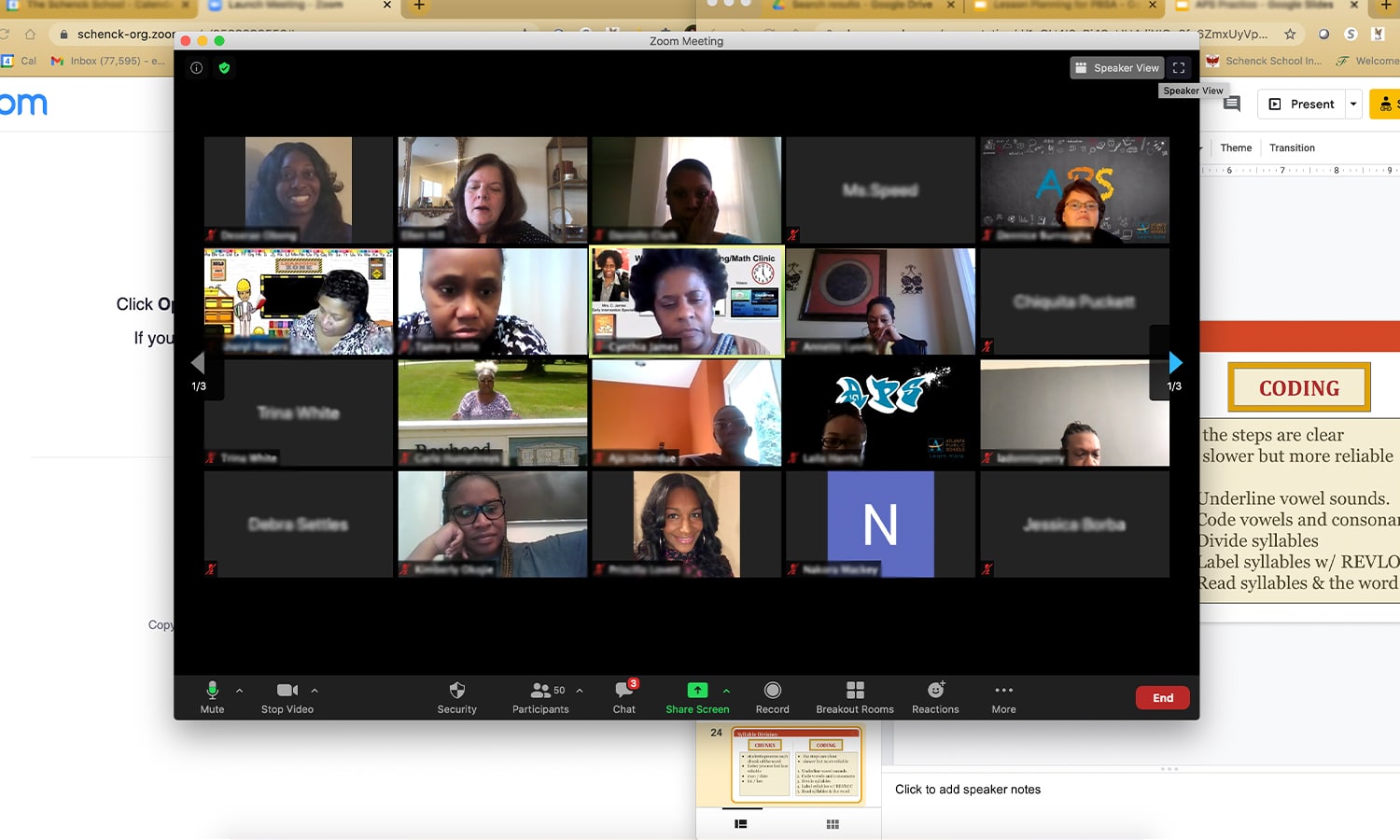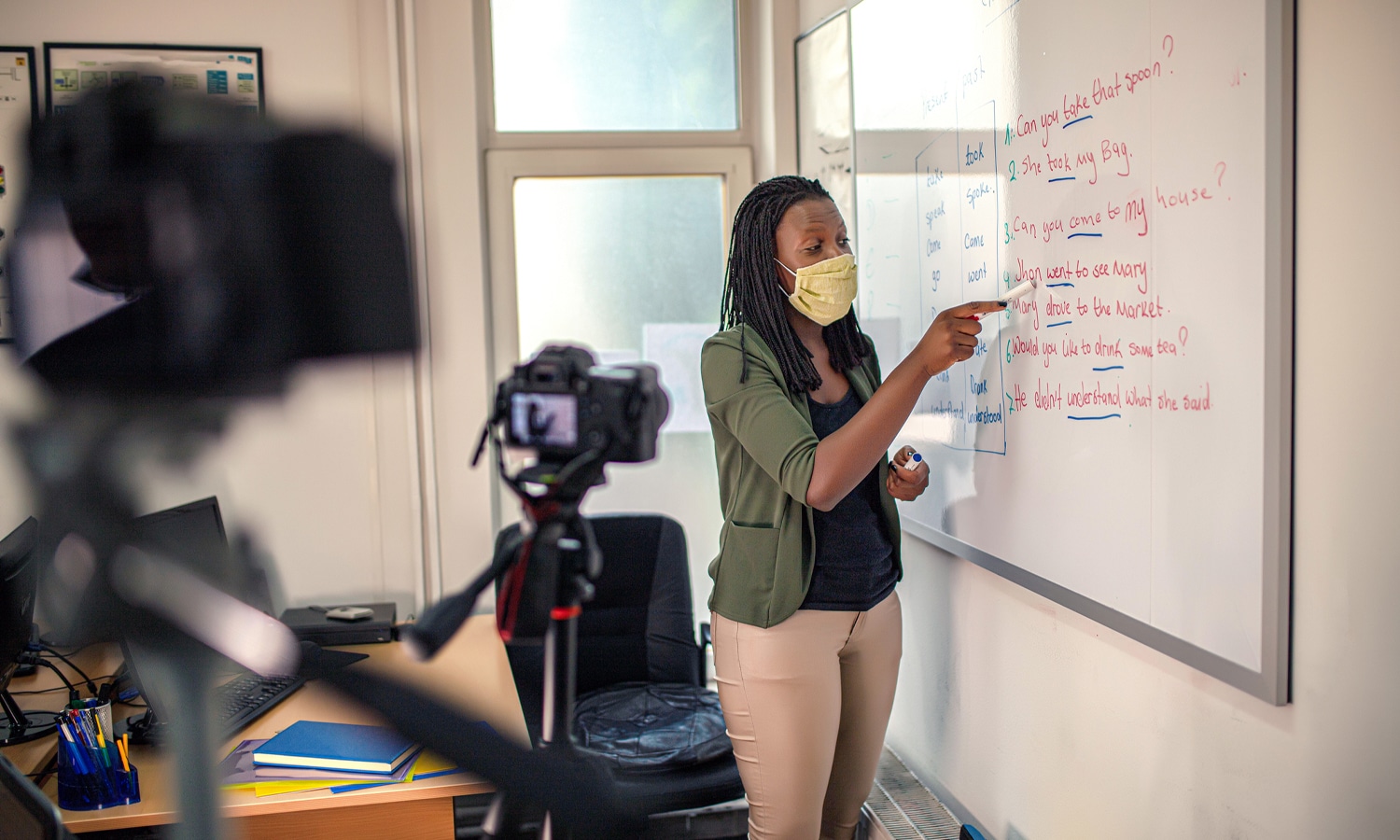Webinars consistently offer excellent opportunities to dive deeper into a variety of different subjects, especially in the world of education. The Schenck School partnered with ReadSource, IDA-GA, BrainLENS, Literacy How, and The Georgia Department of Education to present an overview about the neuroscience of dyslexia and how early identification and intervention have a positive impact. Dr. Fumiko Hoeft and Dr. Margie Gillis presented recent findings in education, psychology, neuroscience, and genetics to support this conclusion. Watch the webinar in its entirety here or read below to learn about five key takeaways from the presentation!
All posts tagged: Dyslexia
Tips to Help Parents and Teachers Identify Dyslexia
Parents and teachers are always looking out for the best interest of their students. And with the prevalence of dyslexia and other reading struggles, parents and teachers play a significant role in recognizing some of the early signs of dyslexia. Ideally, prerequisite reading skills are taught during preschool and any irregularity in these skills can be addressed. However, when students enter elementary school, language or reading deficiencies that may have gone unnoticed in preschool become more recognizable if adults know what to look for. Whether in the classroom or at home, teachers and parents who are able to identify signs of dyslexia ensure these children get the interventions they need to read successfully. Read below to learn about tips that help parents and teachers identify dyslexia.
Benefits of Teacher Training for Dyslexia
Educators have an extraordinary opportunity to make a difference in the lives of children each and every day. With this honored position in kids’ lives, teachers also have a desire and responsibility to stay up to date on the best practices for each subject. Teachers can improve their teaching skills through opportunities for continuing education, although it may be difficult to know which teacher training course offers the most benefits for an educator. Read below to learn about some of the benefits of teacher training for dyslexia and how it helps all students–even those without dyslexia!
The Impact of ReadSource
When ReadSource was founded in 2014, The Schenck School Board of Trustees’ intention was for this community outreach program to help students overcome reading deficiencies. As the years progressed, we are so thrilled to see our impact extend to students, educators, and other members of the dyslexia community. Though 2020 brought plenty of challenges, the team at ReadSource stayed focused on our work and overcame every obstacle we encountered. Read below to learn about the impact of ReadSource over the past several years, and be on the lookout for what we do next!
What is a Dyslexia Specialist?
In the educational system, numerous individuals work to help students behind the scenes and in the classroom. And while teachers and administrators do amazing work to help students with learning differences, there are times when a student with dyslexia needs specialized support to succeed. In some educational settings, a dyslexia specialist can offer the expertise required to help teachers identify undiagnosed dyslexic students and/or provide the targeted interventions those students need. Specialized education can help students with learning differences access helpful tools in school, and a dyslexia specialist can be an important part of the team that makes success possible. Read below to learn more about what a dyslexia specialist does and why it matters with ReadSource.
Which Orton-Gillingham Training Course is Right for You?
Whether you are an invested parent of a dyslexic student or an educator looking for training opportunities, Orton-Gillingham training courses can help individuals learn more about dyslexia and how to provide helpful interventions. From a typical classroom setting to supporting a child at home, understanding the Orton-Gillingham Approach makes it easier to encourage and support members of the dyslexic community. ReadSource is proud to offer a variety of Orton-Gillingham training courses to parents, educators, and groups with a desire to learn more about the principles of the Approach, plus other helpful interventions for struggling readers. Read below to learn which Orton-Gillingham training course is right for you!
The Value of Dyslexic Thinking
For decades, educators, parents, and employers have only thought of dyslexia as a learning challenge that makes it more difficult for children to learn how to read. With evolving research, however, teachers and parents understand more about how the dyslexic brain works and how to teach dyslexic students more effectively. Improved education and targeted support help dyslexic individuals recognize their strengths and use their natural skills and talents to their advantage in school and into the working world. Read below to learn more about the value of dyslexic thinking with ReadSource and our partner, Made By Dyslexia.
Reading Remediation Strategies for Distance Learning
Distance learning has its share of challenges on its own, but educators who provide reading remediation for students online face additional obstacles. When providing remediation for any subject, teachers often rely on physical strategies to keep kids engaged. But when the opportunity for physical interaction is taken away, educators must find new methods to get students interested and provide essential remediation. Read below to learn about successful strategies used to provide reading remediation in a primarily distanced learning world.
Dyslexia and the Brain
For individuals to effectively support members of the community with dyslexia, there needs to be a certain level of understanding about how dyslexia affects the brain. Fortunately, you don’t have to be a neuroscientist to learn about dyslexia and the brain. Take the first step and learn the basics from ReadSource. Read below to learn about some of the latest research on dyslexia and discover some of the differences between the brains of individuals with and without dyslexia.
Tips for Studying with Dyslexia
Studying is a challenge for students everywhere, whether it’s for a spelling or vocabulary quiz in elementary school or a standardized test like the SAT or ACT. Students must be able to practice studying and find the strategies that work best for them, especially dyslexic students. Study strategies need to evolve over time, but studying with dyslexia can be challenging if students don’t have reliable and effective approaches. Read below to explore some tips for studying with dyslexia from ReadSource.
















